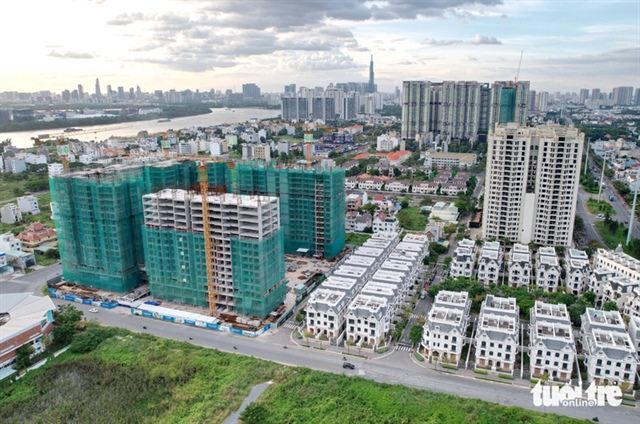Ministry proposes that individuals be allowed to sell, lease 3-5 houses per year in Vietnam
Ministry proposes that individuals be allowed to sell, lease 3-5 houses per year in Vietnam
The Vietnamese Ministry of Construction has proposed individuals engaging in small-scale property trade should be allowed to sell or lease three to five houses or apartments each per year.

Vietnam's Ministry of Construction has proposed that individuals trading real estate products on a small scale should be allowed to sell or lease three to five houses or apartments each per year. Photo: Ngoc Hien / Tuoi Tre |
If the number of sold or leased houses exceeds five, they will have to establish enterprises, according to the ministry’s proposal in the draft decree guiding the implementation of some articles of the 2023 Law on Real Estate Business.
In particular, individuals trading real estate products on a small scale will not have to set up real estate firms, but they will still be required to declare and pay taxes in line with the law.
The Ministry of Construction has outlined three criteria for identifying small-scale property traders.
The first category includes those who transfer or lease three to five existing or undeveloped houses or apartments, or five to ten construction projects annually.
The second criterion identifies individuals as small property traders if they sell or lease property projects, each covering 1,000-2,000 square meters of land in urban areas or 3,000-5,000 square meters in rural areas per year.
The third criterion proposed by the ministry designates small-scale real estate traders as individuals involved in developing housing projects with two or more floors and fewer than 20 apartments. It also includes those selling and leasing inherited houses and houses of gratitude.
Currently, there are no regulations limiting the number of transactions for individuals trading in real estate projects without forming companies
According to real estate brokers, the regulation, if approved, will make life of swing traders harder.
If their transactions surpass the limit, they will have to set up companies, meeting with stricter requirements.




























